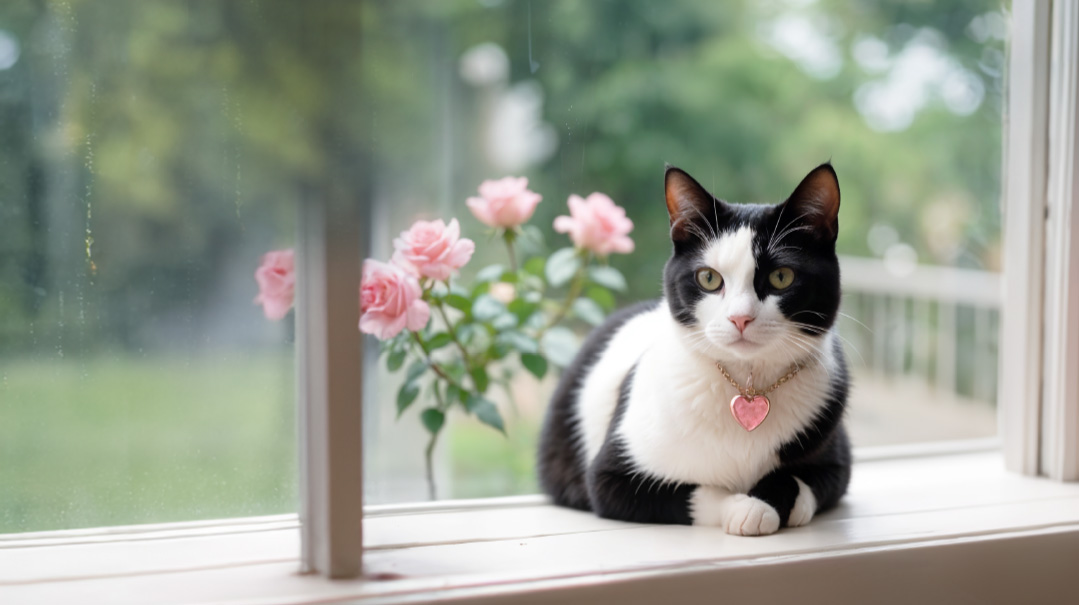Finding My Way
| May 21, 2024As Shlomo gets older, he’ll do what his friends do. If he’s not with a good chevreh, he’ll go off the derech!”

M
y stomach drops as I look at the computer screen. It’s my first time signing up for a frum dating site and I’m feeling overwhelmed by all the information there is to fill out. My background, lifestyle, interests, references, descriptions of myself, what I’m looking for in a marriage partner. I’m studying to be a writer; why is writing about myself so hard?
I’m twenty four and I’ve been frum for five years. It all started during Freshman year, when I dropped by Chabad’s pizza and parshah classes, held during lunch hour at Brooklyn College. I came for the pizza, but I was blown away by the depth and intellectual rigor I never knew Judaism contained. I wanted to learn more, so I got involved with Partners in Torah and started learning with Penina, a frum-from-birth fellow college student. I didn’t have a set destination in mind; I was certainly not planning to become Orthodox. But as we learned together, week after week, year after year, I found myself taking on mitzvah after mitzvah, until I woke up one day fully observant.
All these thoughts flash through my mind as I fill out my dating profile. The site wants to know my hashkafah, and it lists the options in a drop-down box. There are so many terms! Am I Traditional? Shomer Mitzvot? Modern Orthodox Liberal? Centrist Orthodox? Modern Orthodox Machmir? Modern Yeshivish? Yeshivish? Chassidic? I just try to do the mitzvos. What does that make me?
I listen to English music, but don’t watch TV. I dress tzniyusdig, but read secular novels. I stare at the screen in front of me, my mouse hovering over the labels. I click on Modern Orthodox Liberal, then Modern Orthodox Machmir, then Modern Orthodox Liberal before pressing submit. Then I wipe the sweat that’s dripping down my forehead. I hope I made the right decision. I honestly don’t know what I am.
The site matches me with Dovid, and sure enough he asks me about my hashkafah over email.
“How would you describe yourself?" he writes.
“I feel like I’m between liberal and machmir. Maybe 'Libmir?' That’s a term I just made up,” I write back jokingly.
“Do you plan to cover your hair?” he asks.
“I think it’s a beautiful mitzvah, and one I hope to take on.”
Dovid waits for our first date to tell me about his own hashkafic struggles. “I grew up going to very old-school style yeshivahs.” He does an imitation of his rebbi in a thick accent, holding up his hands in a Talmudic gesture. “Boys, boys, on main street you can find a kosher pizza store and a sushi shop on every block, but should you really be eating these goyishe foods? In my day we were happy with Jewish foods — a piece of gefilte fish, a bowl of cholent. Why should you need more than that?’”
“Wow,” I say, laughing,
“No one was mean,” he explains, “but the general attitude was always, ‘Oy vey, what will become of this generation?’”
“Not very inspiring.”
Dovid shrugs. “The school’s approach to Torah seemed to work for most of the other kids, but not for me. I struggled with low self-esteem as a teenager, and I needed rebbeim who would build me up. Instead, I got ones who only gave me mussar.”
I listen intently. “How has that affected your relationship with Hashem?”
“I went through some tough times as a teenager, but I grew up listening to my bubbe’s stories of her miraculous survival in the Holocaust. I absolutely believe in Hashem and Torah. I might find it hard sometimes to feel inspired, but my faith has never wavered.”
Dovid and I come from very different backgrounds. He’s from a heimish Brooklyn family, while my parents are somewhere between Reform and Conservative. We’re at the same level of observance right now, but I’ve grown so much to get to where I am, and Dovid has taken a step or two back from the path he was raised. He’s frum, but, for example, he doesn’t wear black hats when he goes out on dates, something unheard of in his family. I don’t care about black hats, but I do worry: Will we continue to stay at the same place? Or are our journeys headed in different directions? I speak to Dovid’s rabbi, and he tells me that Dovid’s heart is in the right place. That’s something I’ve seen with my own eyes, and I’m reassured.
I meet Dovid’s parents for lunch in a kosher restaurant. I order a tuna wrap, but my stomach is so knotted from nerves I can’t take a bite. His mom asks if I plan to wear a sheitel after I get married and I say that I do. She smiles and seems to relax after that. She chats about how she’s going to take me sheitel shopping and how hard it is to style at first, but she has some amazing tips. Dovid’s father doesn’t say much, and I hope he likes me.
We get engaged soon after, and it’s wonderful to set up my own frum household. Up until my wedding, I’d lived in my parents’ house my whole life. Being Jewish was always important to my family; my parents had been telling my older brother Max and me to marry Jewish since about the time we could walk. We always went to shul on Rosh Hashanah and Yom Kippur, always had a Passover Seder, never ate pork or lobster, and only ate milk with meat outside of the house. But my family thought that was where Judaism should start and stop, and it had been challenging living a frum lifestyle in my childhood home these past five years.
“She’s in a cult,” my uncle warned my mother when I started taking on more and more mitzvos. He was very against “the religion,” as he called it.
“I guess it’s better than drugs,” my aunt replied with a sigh.
My parents weren’t against Orthodox Judaism in theory, but they were upset when I stopped joining the extended family for Saturday brunch, when I told my mom I could no longer eat her delicious dinners, and that I wouldn’t even sit in a nonkosher restaurant with them because of maris ayin.
Now, I love having a husband to make Kiddush and Havdalah for me. I love that I have mezuzahs on all my doorposts, and bookshelves filled with Jewish books in my home. It feels like heaven to have in-laws to go to for Pesach instead of staying in my parents’ chometzdig home and getting by on boxes of matzah and jarred gefilte fish. It also helps my relationship with my parents to have my own place, where they don’t have to be bothered with my requests for counterspace for kosher pots and pans, or live in fear that I’ll set the house on fire with my Havdalah candle.
(I’ve even come to like my sheitel. At first, my family thought wearing a wig is crazy, but they got used to it, just like they got used to my long sleeves and shirts.)
When Shlomo, our first child, is old enough, I love sending him to gan and seeing the smile on his face when he comes home with his Eisav and Yaakov puppets. It’s so cute when he sings Chanukah songs or tries to make brachos in his little toddler voice. I want the moment to last forever.
But time passes. He’s turning four, and we have to decide where to send him to school.
We go to all the open houses. At some, the men are wearing black hats, and I don’t understand half of what the rabbi is saying in his opening speech. At others, I’m the only woman in a sheitel, and the principal mainly speaks about the school’s academic excellence, only touching on Torah and middos. We agonize over where to send our son. We don’t want to go to the same schools my husband found so uninspiring. We also don’t want to send him to a school where Torah takes a back seat.
Then we go to the open house for a relatively new school. The rabbi gives a moving devar Torah connecting parshas Vayeira to education. He speaks about how the education Lot received in his uncle’s Avraham’s tent never left him, even after he moved so far spiritually and geographically. Then he explains all the progressive teaching ideas the school implements, like not making kids sit behind desks and waiting until older grades to give homework. I can see from the parent body that the school is on the more modern side, but I like its emphasis on middos and Torah-learning. Ultimately, we decide together that the school’s hashkafah is the right fit for us.
We’re at my in-laws for Shabbos, just sitting down to the matzah ball soup, when my mother-in-law asks, “Did you decide where you’re sending Shlomo?”
Dovid and I look at each other. We know the school we’re about to name won’t be welcome news.
“Yes,” Dovid says, “he’s going to go to Yeshiva Ahavas Hashem.*”
We tell her all about it, and my mother-in-law drops her spoon, chicken soup forgotten. “No one in our family has ever sent to a school like that before! As Shlomo gets older, he’ll do what his friends do. If he’s not with a good chevreh, he’ll go off the derech!”
“Just be aware if you send to that school, there are certain high schools that won’t accept him,” my father-in-law warns. “When he applies to yeshivah in Israel, there are some that won’t touch him with that school on his résumé.”
My parents are equally concerned about our yeshivah choice, albeit for a completely different reason. They’ve been reading the New York Times’ “exposé” about yeshivos in New York, which is chock full of lies, misinformation, and half-truths, and they’re concerned about me sending their precious only grandson to one of these places. My dad calls me up to talk about it: “You went to public school and look how religious you turned out. What do you need to waste your money on yeshivah for?”
“I’m not sending my children to public school,” I tell my father. “It’s not happening.”
“Just make sure it’s not one of those yeshivahs where they hit the children and only teach them Talmud,” he says.
I try to stay respectful. “Dad, you can’t believe everything you read in the New York Times.”
Trying to find the right shul for us is also a challenge. We’ve been trying out a new one practically every week. In some of them, my husband feels like he’s back in his old high school, surrounded by people who can’t relate to him. In others, we feel too frum and out of place. We’re like Goldilocks — everything is too hard or soft, left or right; nothing fits us. How do two out-of-the box people find the right box for them?
Then one day we get a recommendation for a shul from friends who know us well. It’s in a neighboring community where there’s a huge variety of people, but it’s also within busing distance to our son’s new school. We get put up for Shabbos so we can try it out. The rabbi is jovial and friendly, with a positive Chassidic bent that my husband finds really refreshing. And the shul is exactly what we’ve been searching for: Everyone from chassidim with peyos to people just barely shomer Shabbos daven side by side. No labels. People come over to us at the kiddush with a smile and ask us where we’re from. Over and over, we hear, “You have to come to us for Shabbos some time!”
My husband comes home from shul beaming; it’s the first time I’ve ever seen that. I know we’ve found our place.
After our move, we have my in-laws over for Shabbos, and my mother-in-law purses her lips at the number of women who aren’t covering their hair properly. My father-in-law counts the number of men who aren’t wearing black hats.
“Are you sure this is the shul you want to be part of? None of your brothers go to a shul like this,” my father-in-law tells my husband.
My family also has objections: “It must be horrible being separated from your husband when you pray,” says my uncle. “How do you live like that?”
“Prayer’s not a spectator sport. It’s not like going to a ball game where you want to get good seats and watch the game together. I’m praying to G-d. It has nothing to do with my husband,” I try to explain.
I call Penina, who I’m still learning steadily with, through our marriages, moves, and children. “Do you think I’m making a mistake?” I ask her. “Where my son goes to high school, summer camp, post-high school yeshivah, who he will marry — it’s all being set into motion by the choices I’m making now. What if I’m messing this all up for him? What if I’m not qualified for this job?”
“You can’t mess things up for him.” Penina reassures me. “Hashem has looked at every set of parents in the world and decided that you are the best equipped to raise him. Say Tehillim, ask your rabbi for advice, and then trust in Hashem. He tailor-made Shlomo’s experiences for him, and even the mistakes you make are going to be the best possible choices for his neshamah.”
At her recommendation, I start reading a chapter of Shaar Habitachon each night, and slowly I begin feeling less stressed about everything.
My parents stay with me for Shabbos and even come to shul. Everyone goes out of their way to welcome them and make them feel comfortable. At Shabbos lunch, after zemiros, my mother announces that she’s going to start lighting Shabbos candles. She’s done this ever since. My parents also start keeping kosher. While they’re not yet shomer Shabbos, I can see how much they’ve grown. I think back to the beginning of my journey as a baalas teshuvah, living in my parents’ house, when I first refused to eat the food my mother cooked. At the time, my mother was upset.
“Just eat,” my mom had said, putting a juicy chicken cutlet on a plate and holding it out to me. “What are you going to do, only eat kosher for the rest of your life? This is just a phase, so you might as well get over it.” Now, she’s the one who’s keeping kosher; it turns out that it was eating treif that was just a phase. The Jew who stood at Mount Sinai and said “naaseh v’nishma” — that’s who she really is. That’s who we all really are.
My husband gave a shiur recently in shul, something he’s never felt comfortable doing before, and my son got a glowing report card from his teacher who said he has a heart of gold and helps create a caring feeling in his school community. We feel so loved and appreciated by our community, our shul, and my son’s yeshivah. We’ve been on a journey to find the right place for us, and that meant forging our own path.
I’m still unsure about the labels. What are we? I don’t know, but does it matter? I’m so proud of our beautiful family and the way we’re all growing together.
(Originally featured in Family First, Issue 894)
Oops! We could not locate your form.







